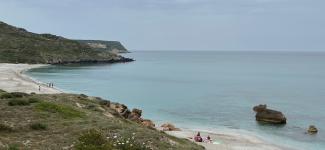Are you a UBC undergrad thinking about going on a student exchange? It can be a daunting decision. You might wonder, what’s it like spending a year or a semester in another country? How can you prepare? And how do you handle it when things go sideways? We talked with a group of UBC Global Ambassadors who studied abroad with a Go Global program. They spoke with us candidly, sharing their personal impressions, fears and misgivings, best memories, top tips and advice. (This is story is the last in a series of five Global Exchange Insider interviews.)
Meet Elisa Delle Monache, a 2nd-year UBC undergraduate student in Political Science and International Relations in the Faculty of Arts. She is originally from Italy and grew up in San Diego, California in the U.S. Delle Monache participated in the Global Seminar “Ethnography of Sardinia: Vernacular Religion and Cultural Heritage” in Sardinia, Italy.
Before you go
Why did you pick this particular Global Seminar? How did you hear about it?
I am originally from Italy and this seminar explored the cultural heritage of those from Sardinia. Both of my grandmothers happen to be from this island, so I knew this was a seminar I had to check out. The town we stayed in, Bessude, was nestled in the countryside. It is a once in a lifetime experience to be able to travel to an island that your family is from and study your heritage in the process!

The town UBC undergrad Elisa Delle Monache stayed, Bessude, nestled in the countryside (photo: Elisa Delle Monache)
What was the application process like? Any tips?
It was pretty straightforward. Just take your time and speak to your Go Global advisor if you have any questions or issues.
How did you prepare? Anything to be aware of? (travel, cultural differences, classes, etc.)
I think the best method of preparing for this seminar is researching the location, weather and cultural expectations in advance. The town we stayed in had a population of fewer than 400 people. This means that social and behavioral expectations of students our age were quite different from what any of us had experienced before. Luckily, our professor Dr. Magliocco was incredible in preparing us in advance because she had deep connections with this town and knew what to expect.
What worries did you have beforehand? How did you overcome the anxiety?
I worried about who the other people attending would be, and if we would all get along or not. All 13 students on my trip ended up becoming close friends and sharing so many memories together. For students waiting to attend their Global Seminar, know you will connect with like-minded individuals on your trip and it will be an incredible experience.
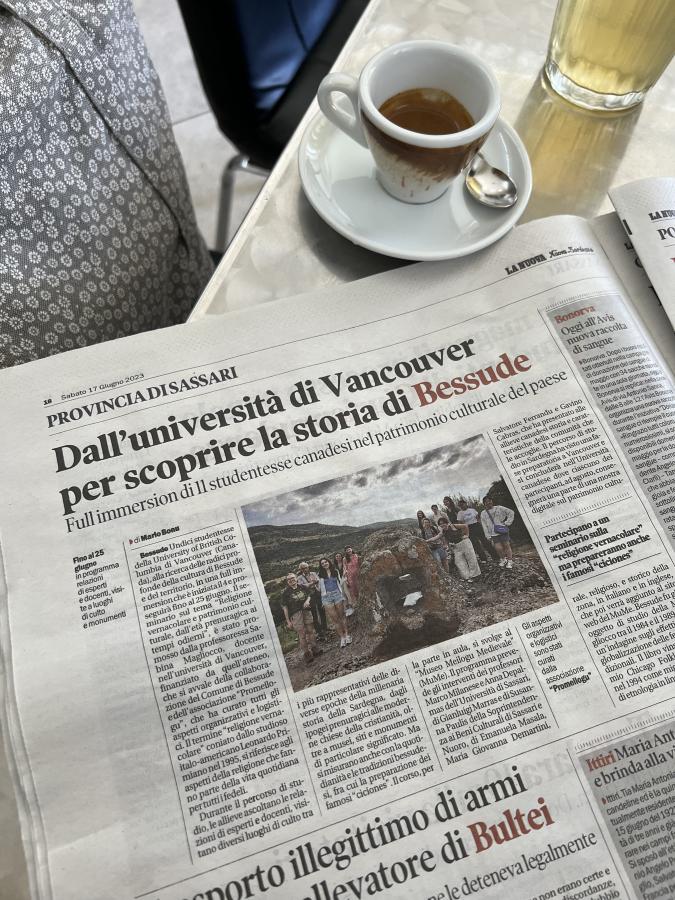
The local newspaper wrote a feature about the Canadian visitors from UBC! (photo: Elisa Delle Monache)
During the experience
How was the overall experience? What did you learn?
Doing this seminar was an incredible experience that I will never forget. I developed a newfound passion for archeology and the past. I have become fascinated with the inferences, hypotheses and stories that can be recreated by what archaeologists and anthropologists discover. This learning experience was different from others because we were fully immersed in and surrounded by what we discussed. We were able to stand in front of the prehistoric megalithic structures we studied. We partook in summer solstice rituals that have been happening for hundreds of years and helped in the everyday activities of the town where we stayed.
I worried about who the other people attending would be, and if we would all get along or not. All 13 students on my trip ended up becoming close friends and sharing so many memories together.”
If you could change something or do it differently, what would you change or do?
It would be to take in every single moment as it flies by. Seminars are particularly short—they are only a few weeks—so enjoy every moment, take lots of pictures and learn as much as you can.
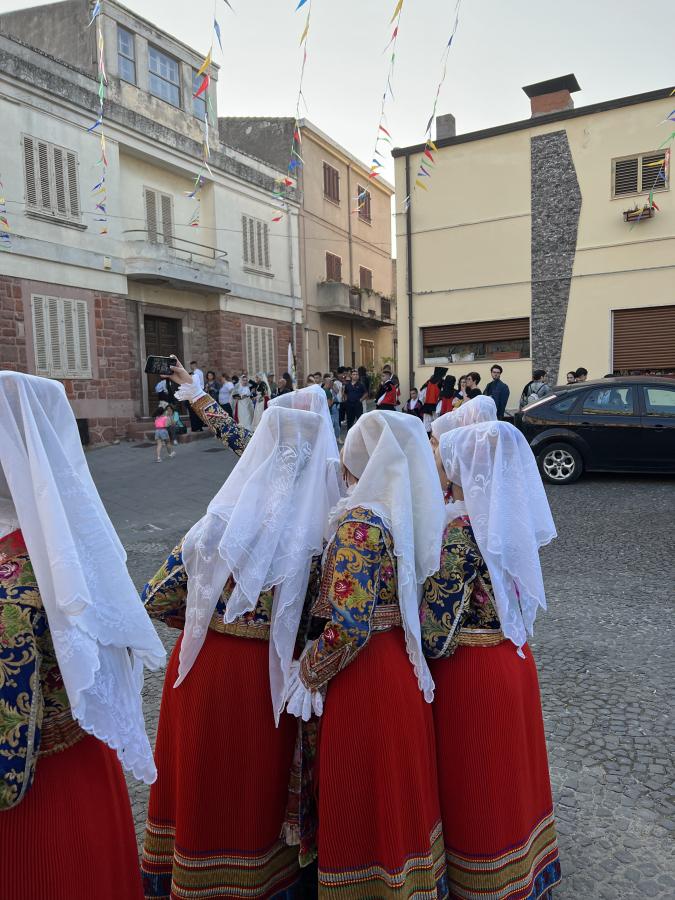
Sardinian girls dressed in their town’s traditional costume taking a selfie during a festival (photo: Elisa Delle Monache)
How were the academics?
The academics associated with this course were unique compared to those at a regular course at UBC. While the learning was done at a much faster pace, it was also hands-on. We would have a lecturer from a local university during the day, then later visit the sites the lecturer discussed, which was always a really cool experience. Our final project was a digital museum exhibit on vernacular religion for the town of Bessude. Overall, I felt much less stressed and more engaged with this course than other courses, which I truly appreciated!
How was the social aspect?
Considering the remote location of the town we were staying in, there were not many young adults in our area. Despite this, I have become close to those who were in my seminar group. We hung out nearly the entire time. We did a lot of sightseeing and hit various parts of the island, including Alghero, a beach city. Every site we visited was full of history.
After the experience
Would you recommend this experience to others? What can they look forward to?
I would 100% recommend this experience to other students. Even though three weeks is a short amount of time, I reflect on the memories made and lessons learned on a regular basis.
My favourite memory was ciccones making. They are small, traditional pasta. The women of the town would meet every Monday and Thursday at the local community building to make the pasta for the annual festival. They start making the ciccones in May, meeting biweekly for months until the festival occurs in August. The pasta dates back much older than types like fettuccine and ravioli, which originated in Asia; while ciccones originated in Sardinia. The women who make them fully dedicated their time as volunteers, demonstrating the importance of their festival. They were so generous in showing us the careful steps to create the pasta, and welcomed us each week to sit down in their space to chat, speak about our experiences and vice-versa. At the end of the trip, one of the women surprised each of us with a small bag of ciccones to take home to Canada.

Cicciones (pasta) set out to dry in preparation for an August festival. The images on the wall are of an older woman preparing the cicciones, which are a tradition of the Sardinian town Bessude (photo: Elisa Delle Monache)
A typical day consisted of waking up in the morning, having a traditional Italian breakfast prepared by our Airbnb hosts and heading to the MuMe Museum for our daily lecture. We had various guest lectures by professors from the universities on the island. They had researched many of the archeological and historic sites we visited. Most days, we would then go visit these sites we had discussed in the morning. We would have lunch at a typical Italian restaurant, where we would eat multiple courses and try many different types of traditional meals. Once we returned to Bessude in the evening, we would again have a traditional Italian dinner, this time prepared by a nearby restaurant, and reflect on the day’s activities as a group.
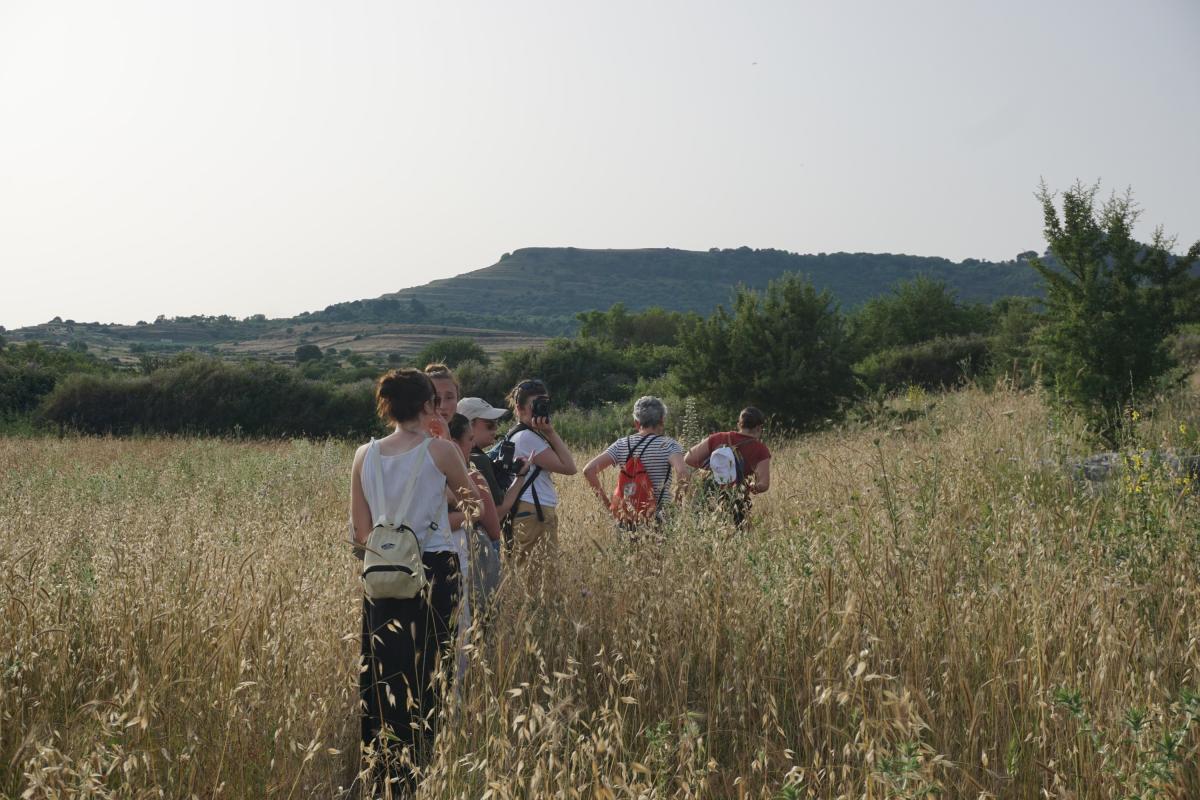
A student field excursion to visit a prehistoric megalithic tomb site (photo: Elisa Delle Monache)
What was the impact on your academic and personal development?
Nuraghi, like Santu Antine, are prehistoric, megalithic constructions that left a mark on me. These sites contained an abundance of history and I enjoyed our hour-long drives where we would spend time counting how many nuraghi we could see. There are so few places in the world where you can see an abundance of ancient structures with fascinating stories on such a mundane basis. Sardinia is an incredible place and I hope to visit again in the future. Also, I loved the Sardinia course so much that I am going on another Global Seminar this summer to Bogor, Indonesia!
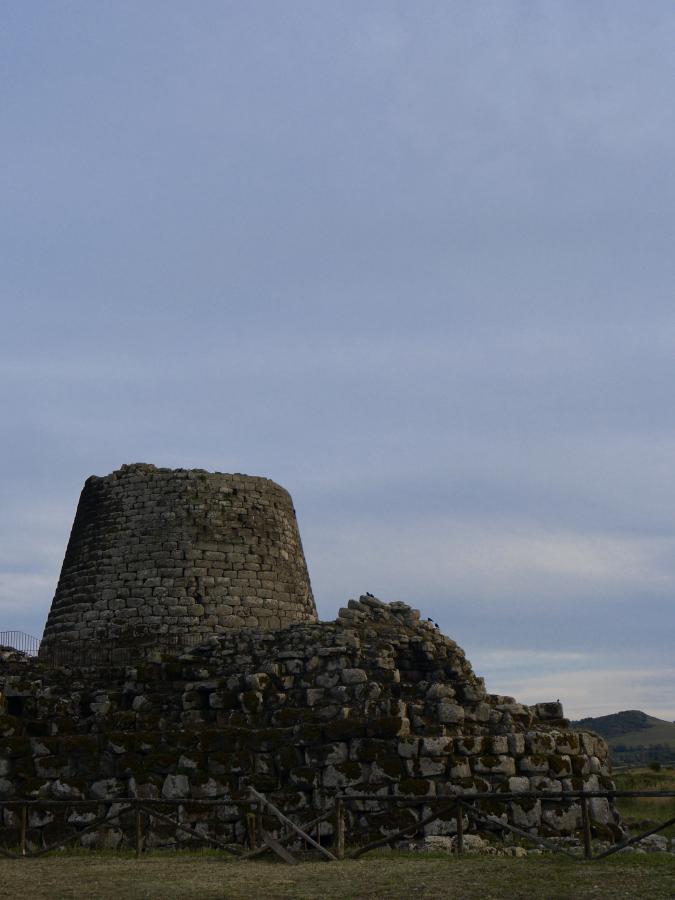
Nuraghe Santu Antine, a prehistoric, megalithic construction, similar to the many often spotted around Sardinia (photo: Elisa Delle Monache)
Read more Go Global student stories.
